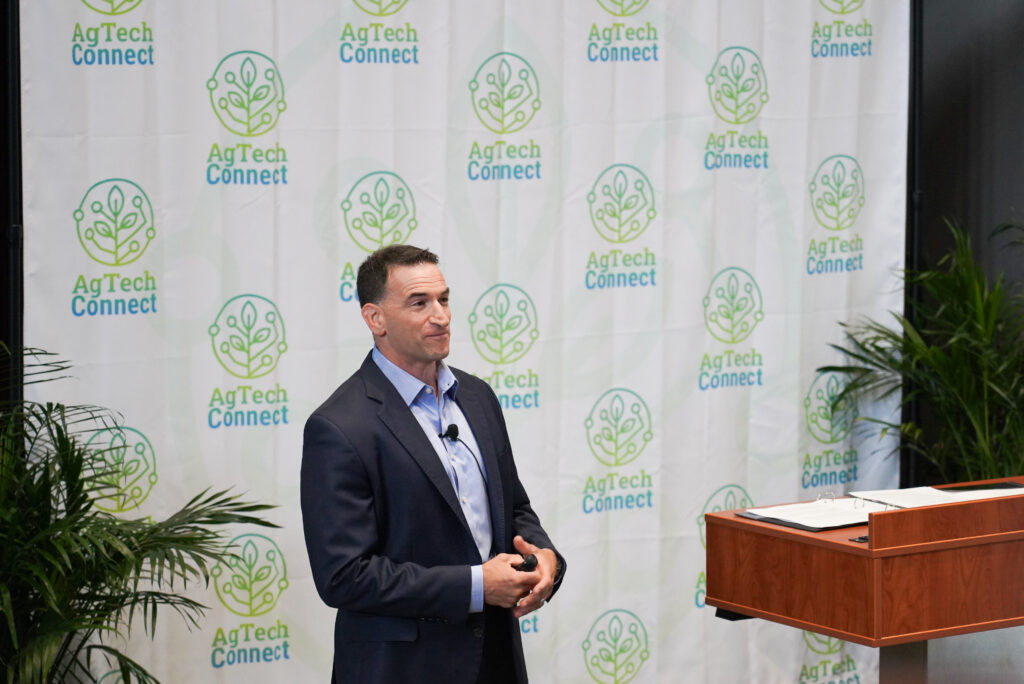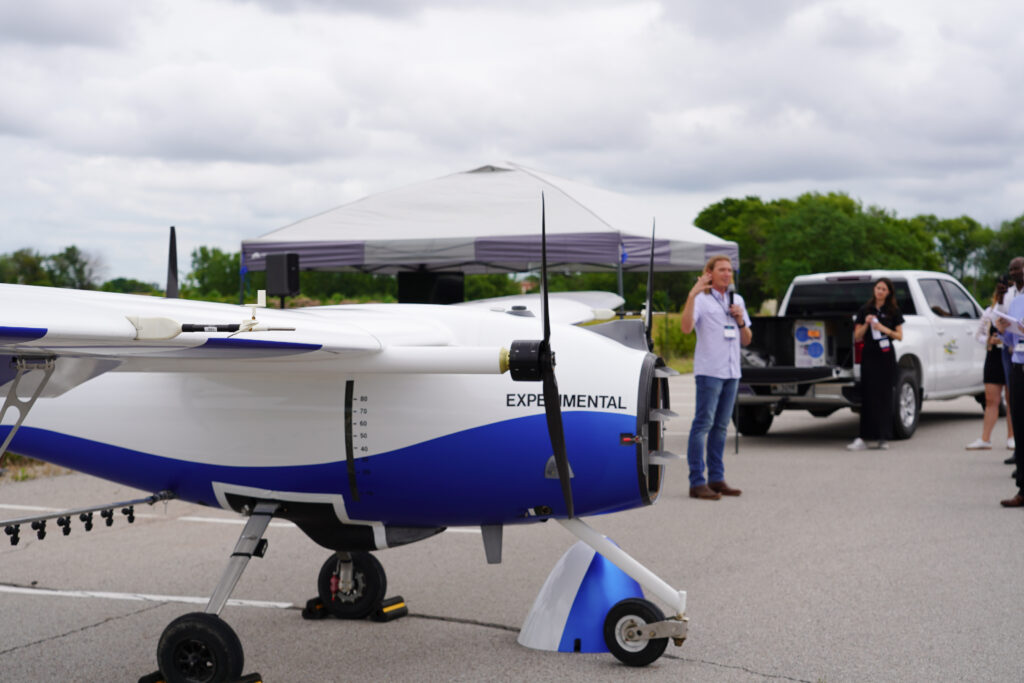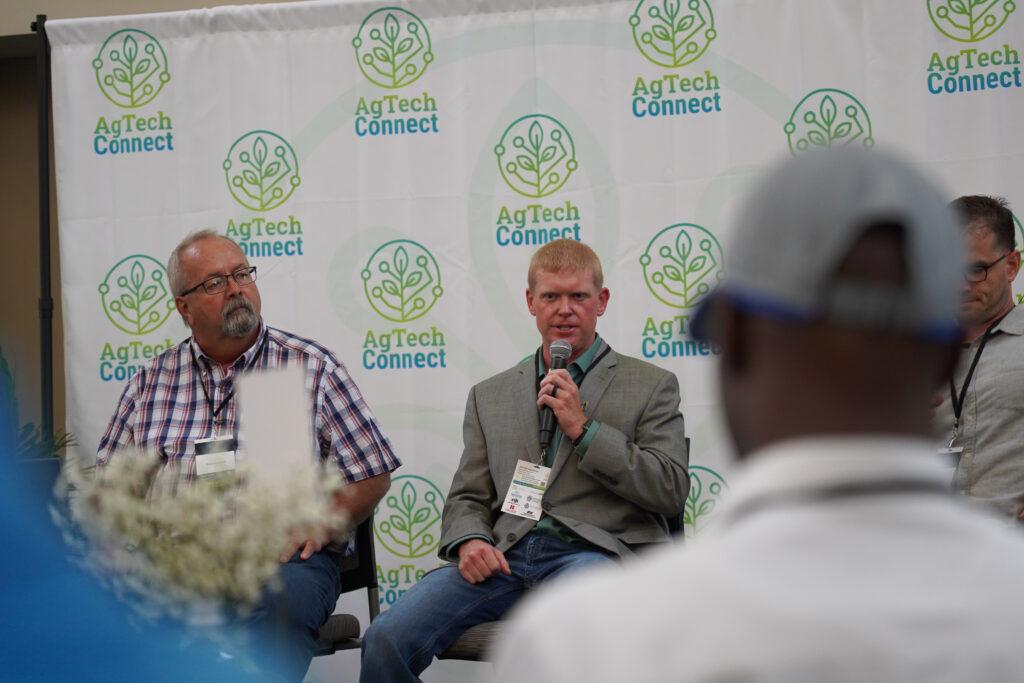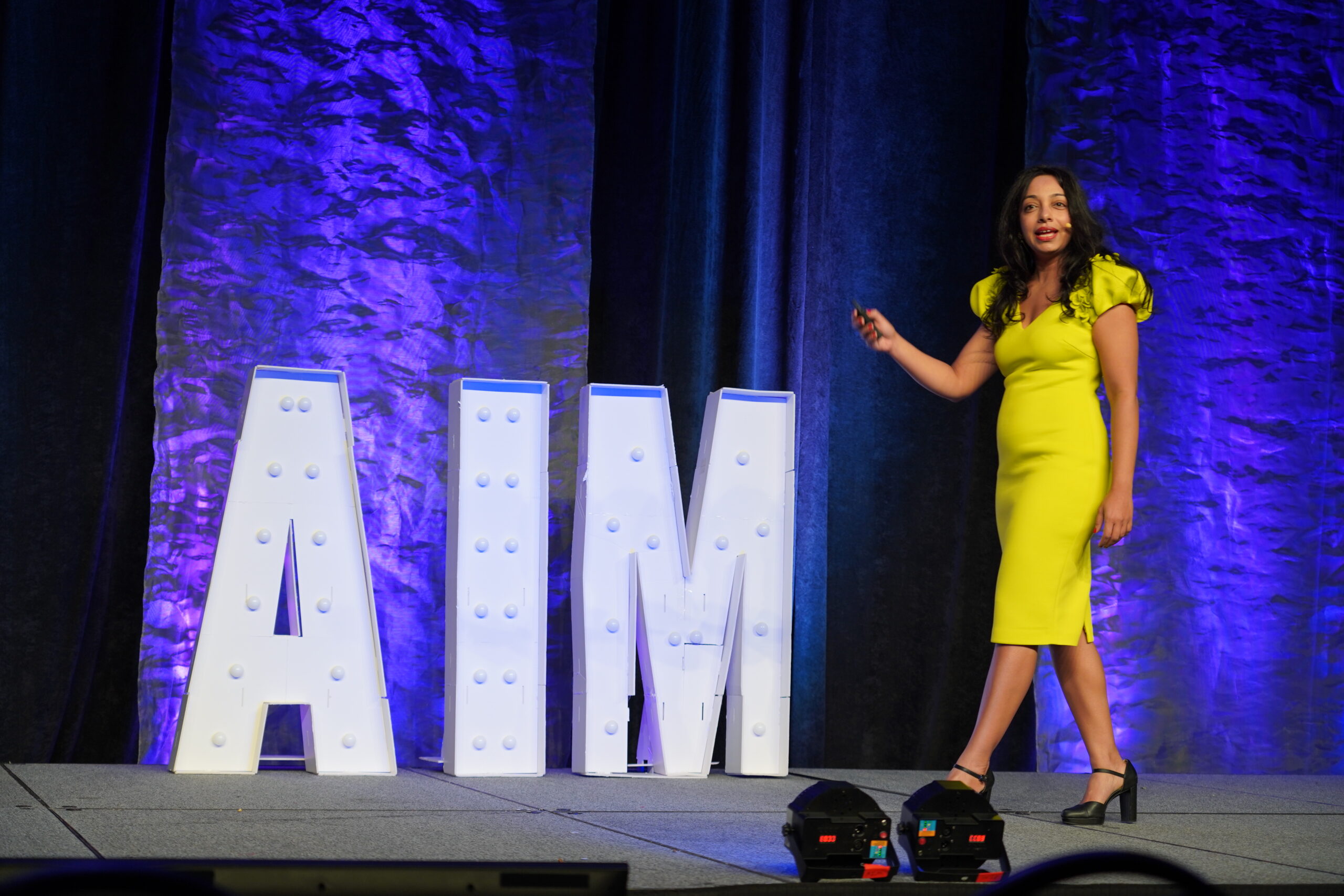The 2025 AgTech Connect Conference, hosted by the Combine, brought together producers, entrepreneurs, investors and federal officials in Lincoln Wednesday for a wide-ranging conversation about the future of agriculture — one shaped by technology, global collaboration and growing cybersecurity threats.
“Agriculture is personal to me,” said Combine Director Brendan Costello, who took on the role two months ago. “It’s made me who I am, and it’s made me very excited to be part of an organization like the Combine focused on moving forward ag technology in the state.”
Costello said the Combine has helped more than 40 agtech startups raise over $40 million in venture capital and grants since its founding in 2019. The conference, he said, is about the opportunity to connect around agriculture and technology.
FBI: “Agricultural security is national security”
Eugene Kowel, the special agent in charge of the FBI’s Omaha field office, delivered one of the day’s most serious keynotes, alerting to an increase in cyber and biological dangers targeting America’s food system.
“Agriculture and food hit all three: national security, economic security and public health,” Kowel said. “If they were to be impacted, it would have a debilitating effect on our nation’s security.”
Kowel outlined several threats facing U.S. agriculture, including ransomware attacks, financial fraud, foreign espionage and the potential for biohazards to be introduced into crops or livestock. He emphasized that agriculture is now considered critical infrastructure by the federal government.
“Be vigilant. Have zero trust, and have the FBI be part of your plan if you’re ever a victim,” he said.

Kowel urged businesses to prepare incident response plans that include FBI involvement and to report intrusions early. He also recommended joining information-sharing networks, such as InfraGard, and participating in FBI programs such as its Citizens Academy.
“There’s nothing we do alone,” Kowel said. “There’s nothing the FBI does without partnership with state, local, federal and tribal agencies.”
Global insights: “International expansion is not a copy-paste strategy”
A panel of international founders and operators explored the challenges of expanding agtech companies beyond U.S. borders. Speakers included Ryan Bruchou of Cattler, Joao Rebequi of AG4UP and Maria Paz Alvarez of Zavia Bio.
“International expansion is not a copy-paste strategy,” Alvarez said. “You need to understand the local rules, the way they do things and adapt your approach to each market.”
Panelists emphasized the importance of identifying local partners, fostering personal relationships and tailoring products to meet the distinct needs of each region. They also noted that regulatory barriers, especially in the biotech sector, often pose a greater challenge than tariffs or trade restrictions.
“The ag industry is a people-first, handshaking business,” Bruchou said. “At the end of the day, you’re in it together.”
Rebequi added that innovation looks different around the world: “What works in one place may be a real problem and a real opportunity somewhere else.”
Startup demos: Horses and drones
Two startup demonstrations gave attendees a hands-on look at new tools being designed for farmers and ranchers.
Sean Fintel presented the EZ Grazer, a patented horse feeder that mimics natural grazing patterns, reduces hay waste and can notify owners when the feeder is empty. Future versions will include AI-powered health monitoring and thermography.
Lukas Koch, CEO of Kelly Hills Unmanned Systems, showcased a fixed-wing agricultural drone called “Pika” capable of autonomous flight, obstacle avoidance and precision spraying. Based in Seneca, Kansas, the company collaborates closely with the FAA to commercialize drone use in agriculture.

The drone’s detect-and-avoid system and rugged build allow it to fly in harsh conditions, including the Brazilian countryside. “It’s about bringing legal, advanced drone solutions into mainstream ag,” Koch said.
Producers: “Solutions must be usable by both me and my dad”
A producer panel featuring Tanner Nelson, Roric Paulman and Quentin Connealy focused on what farmers want from agtech companies and what they don’t.
“It’s really important to have the solution be such that I can use it, and my dad can use it,” Nelson said.
Farmers said they are open to new tools, especially those that reduce input costs and improve efficiency, but only if they fit seamlessly into their current systems. Usability, trust and demonstrable ROI were common themes.
Connealy summed it up: “We need to find the mechanism, have your product fit in there to help reduce those costs or help find efficiencies that we cannot find yet.”
Paulman said innovation must consider labor shortages, working capital constraints and operational realities: “The pain of being a producer and being an early adopter is death by a thousand cuts.”

Panelists also discussed the importance of peer validation, university extension networks and real-time, actionable data. When it comes to the workforce, critical thinking and adaptability are valued more than formal degrees.
“I’m a critical-thinking-skills guy,” Paulman said. “A commitment to working, contributing and thinking on your feet, that’s where I am, and I will invest in that.”
Seeds, silicon and soul: Gen AI’s role in ag’s future
Dan Kurdys, executive vice president of Pairwise, shared a glimpse into how generative AI is transforming agriculture.
“Technology is a tool, and tools exist to solve problems,” Kurdys said.
He described Gen AI as a force multiplier for technologies such as CRISPR — a gene editing technology that allows for the precise modification of DNA sequences in living organisms, robotics and biologics that accelerates their application and efficiency. But he cautioned that human judgment remains irreplaceable.
“Don’t outsource your thinking,” he said. “Still remain in critical thinking, still remain in judgment, moral vision.”
Kurdys urged the audience to establish open benchmarks to evaluate AI tools and help attract more data scientists to agriculture. He also emphasized the value of “dark data,” the unstructured knowledge held by experts, and called for greater collaboration to make those assets usable by AI.
“Whoever has the knowledge assets that are going to be really valuable to Gen AI is going to be really well positioned for this future,” he said.
Celebrating innovation and ending with expert dialogue
The conference also celebrated the Combine’s newest incubator graduates: DARO and MTE Biotech. DARO, co-founded by Josh Demers and Kristen Bernard, is working to prevent livestock disease outbreaks by applying biosecurity lessons from the COVID-19 pandemic. MTE Biotech, co-founded by Sean Carr, Nicole Buan and Paul Blum, is advancing microbial strain engineering to tackle complex biological challenges.
The day concluded with a series of expert-led roundtable discussions where attendees gathered in smaller groups to dig deeper into topics ranging from funding gaps to smart farming and ag robotics.
These conversations highlighted a recurring theme of the event: that agriculture’s future depends not only on technology but also on collaboration, trust and a deep understanding of producers’ real-world needs.




Leave a Reply